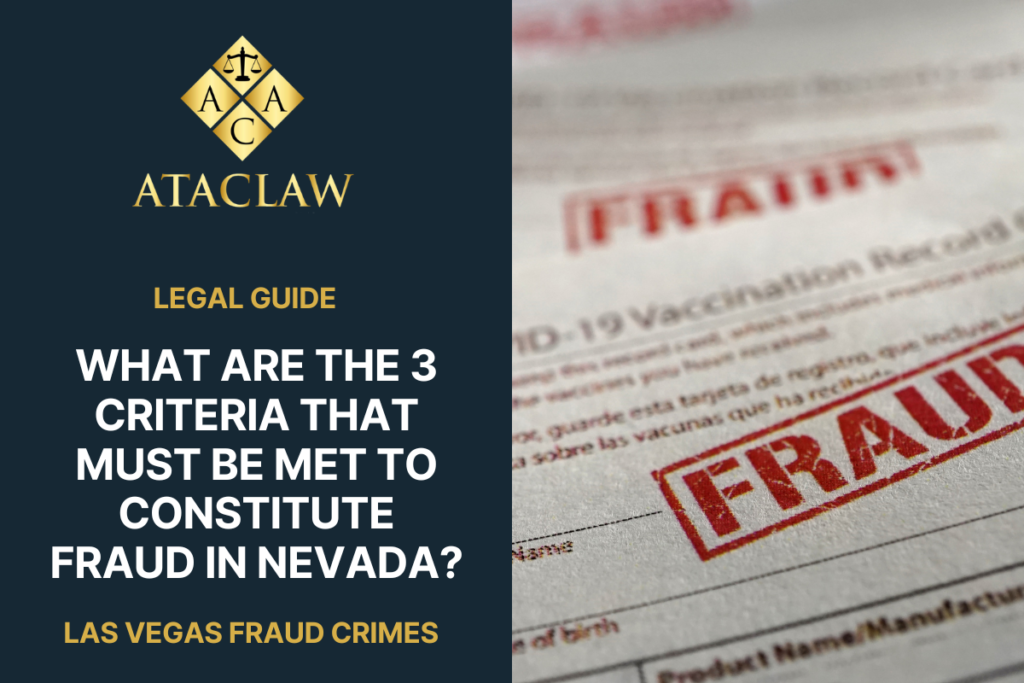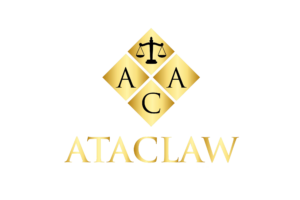A fraud charge is pretty serious and can carry steep fines as well as some time behind bars. Nevada takes this crime very seriously. However, fraud isn’t always very straightforward or clear. It is easy to be falsely accused or to have your legitimate, sincere actions be misconstrued as deception.
At its core though, fraud is intentional deception. The person uses deception for a personal or financial gain or to cause damage to someone. There are many different types of fraud including identity theft, mortgage fraud, and casino fraud so there are plenty of opportunities for a person to be accused of fraud. Further, a person can be charged with fraud even if the “victim” did not experience any property or financial loss.
But there are three factors that constitute fraud in Nevada. You should know them.

What is the “Fraud Triangle”?
The Fraud Triangle is a diagram that shows the trifecta of fraud risk. It expands on an earlier model created by two criminology researchers, Donald Cressey and Edwin Sutherland. According to the model, a person is motivated to commit fraud, or the risk of fraud increases, when the three elements come together. In other words, a person who has these three factors before them is more likely to commit fraud or be more motivated to commit fraud and a person who is subject to these factors is more likely to become a victim of fraud.
Steve Albrecht, Ph.D., an accounting professor at Brigham Young University, stumbled upon the concept of the Fraud Triangle in the late seventies when he was giving a fraud seminar at a major paper company. A participant noted that the components needed for fraud were very similar to those needed for fire. From there, Albrecht adapted the Fire Triangle (oxygen, heat, fuel) to create the Fraud Triangle:
- Opportunity – The oxygen for fraud. There is some type of opportunity presented
- Lack of internal controls
- Ways to get around internal controls
- Loopholes
- Lack of supervision or security
- Management not watching
- Pressure – The heat for fraud. There is some type of perceived pressure or motive
- Personal financial pressure
- Poor financial decisions like bad investments or gambling
- Addiction
- Job loss
- Divorce
- Rationalization – The fuel for fraud. There is some type of rationalization to make the fraud less “criminal” and not a violation of their values
- Not getting a promised raise or promotion
- Saying “It’s just a loan”
- Telling themselves that they will pay it back
- The entity has a lot of money and the money they take is minuscule in comparison
- They deserve it because they have put a lot of time in the company, they were abused, etc.
What are the Elements of a Fraud Claim?
Nevada law provides five requirements that the plaintiff must establish to claim fraud:
- False representation of person or opportunity or both
- The belief or knowledge that the representation was false
- Intent to pressure or encourage or coerce the plaintiff into consenting to the fraud
- Justifiable reliance on the false representation
- Damage that results from the reliance
When each of these can be proven then the plaintiff can legally claim fraud. They do not need to have experienced loss, but only that the fraud or fraud attempt occurred. They will need to prove this claim and meet these requirements by presenting evidence which may include witness statements, emails, text messages, phone calls, financial statements, police reports, and physical evidence like contracts and proposals.
What Defense Strategies are Used in a Fraud Case?
As with any criminal case, if the defense attorney is able to raise a reasonable doubt regarding the guilt of the defendant, then the judge should dismiss the case. In order to accomplish this, the defense attorney will create defense strategies that work to achieve that.
Some of the more common defenses against Nevada fraud include:
- Lack of intent – the defendant did not intend to defraud the victim
- Insufficient evidence – the evidence against the defendant is not enough to prove guilt beyond a reasonable doubt
- Falsely accused – the defendant did not commit fraud and was falsely accused
- Mistake of fact – the defendant was not aware that what they were doing was illegal or wrong
- Unlawful search and seizure – the police obtained the evidence through unlawful asset forfeiture or illegal search and seizure so it should be excluded
- Entrapment – the defendant was lured into committing the crime by an agent of the state or law enforcement
Do you need a Fraud Crimes Attorney in Las Vegas?
If You’re Facing Fraud Charges, We’re Here To Help.
 Call us for help
Call us for help
We have answers for you
To learn more about Fraud laws in Las Vegas and how to get your self defense charge dismissed or to discuss a particular criminal case that you or someone you love is facing, Call ATAC Law firm for help to get your charges reduced or dismissed.
Contact us for a FREE phone meeting to discuss your case with what people are calling the best criminal defense attorney in Las Vegas.
At ATAC, our Las Vegas team of lawyers is here to work with you to help you through your case.

